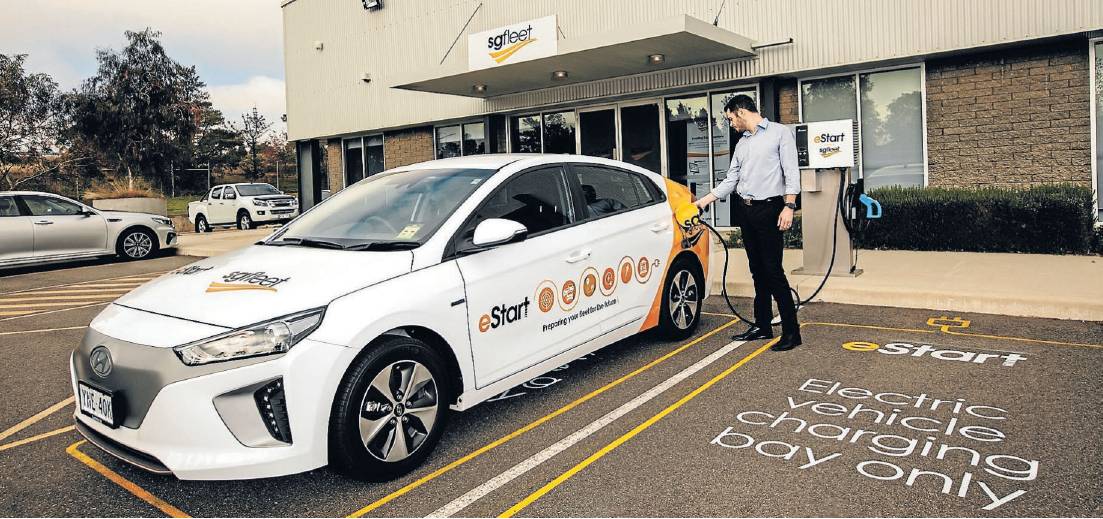Getting ready for a ‘mobility’ future
Few if any industries have escaped digital disruption and the deceptively straightforward fleet management industry is not only undergoing transformation but is poised to become an important catalyst for transforming how people get from A to B.
The proliferation of alternative means of getting from A to B has given rise to the “mobility sector”.
Automotive transportation, says the McKinsey Centre for Future Mobility in a recent paper, has shifted “from a driver or owner-focused value proposition to a customer-centred one”.
The pace of investment in future mobility technology – including car-sharing and autonomous-vehicle technology – has accelerated from US$4.3 billion annually in 2010-2013 to US$25.3 billion in 2014-2017, according to McKinsey.
A report from Austrade on “Future Transport and Mobility” predicts that Australia’s future transport market will generate $16 billion by 2025.
“The future transport and mobility sector is characterised by shifts from ownership to ‘usership’, transportation to mobility and internal combustion engines to electric powertrains,” the report explains.
Austrade identifies “Mobility as a Service” (MaaS) as a key emerging market. MaaS entails the evolution of car- and ride-share into “user-centric, multimodal mobility services that include public transport and emerging first and last-mile mobility options”. Consulting firm Accenture believes global markets for MaaS, fuelled by continual improvements in autonomous-vehicle technologies, will grow exponentially over the next decade.
“Mobility as a service—digitally-enabled car sharing and ride-hailing—will be a key driver of growth and profitability in tomorrow’s auto markets,” Accenture says in its report, Mapping a route towards future success in the new automotive ecosystem.
“The convergence of four megatrends – electrification, autonomous driving, connectivity and the sharing economy – is revolutionising today’s automotive businesses.”
ASX-listed fleet management, vehicle leasing and salary packaging services company SG Fleet Group is moving swiftly to become a leading player in mobility services.
SG Fleet Australia Managing Director Andy Mulcaster says there is “increased traction” for the company’s car-sharing offering and its electric vehicle and mobility consulting services are “increasingly in demand”.
“Clients want to know what alternatives are available. That’s a difference we have noticed in the past two or three years,” he says.
“They can see that there’s a shift in the landscape, and they want to know how we can help them to future-proof their businesses.”
SG Fleet has operations in Australia, the United Kingdom and New Zealand and has more than 140,000 vehicles under management.
Mulcaster says SG Fleet has a culture of continuous innovation, which is proving critical as the mobility sector takes shape.
“It’s important that we can be adaptable to the changing needs of our customers,” Mulcaster says.
“With the accelerated pace of technological change we can’t know for certain what the mobility landscape will look like in the next few years but by being agile, with the ability to adapt quickly to the rapidly changing market landscape, we will be able to play a role in shaping these new trends and have the capability to deliver the solutions addressing the resulting needs.”
Andy Graham joined SG Fleet in 2006 as General Manager of Business Systems. Reflecting the importance the company places on both technology and innovation in the emerging mobility services sector, Graham took on the role of Group Head of Innovation and Technology in 2015.
Among the innovative mobility products introduced by SG Fleet is a car-share service offered with SG Fleet’s partner GoGet. Members have access to 3000 cars, vans, SUVs and convertibles in local streets, CBD buildings, airports and Westfield shopping centres.
In February, the Australian National University (ANU) in Canberra, through SG Fleet, struck an agreement for the provision of car-share services.
Features of the car-sharing service include an on-campus fleet of 20 vehicles, including a goods movement van, two hybrid vehicles and three eight-seater vehicles. University staff and students have access to GoGet vehicles Australia-wide. Vehicle costs are limited to usage costs (the ANU is not liable for the cost of the cars when they are not booked).
Enhanced functionality within SG Fleet’s Fleetintelligence portal enables ANU fleet managers and administrators to quickly and easily allocate trips to the correct cost centres and track usage by driver.
SG Fleet has also developed eStart to help customers prepare for the addition of zeroemission vehicles or hybrids to their fleets.
The eStart Zero Emission Vehicle (ZEV) Transition Plan is an end-to-end planning solution for transitioning to a ZEV fleet. Each step in the process builds on the preceding in a structured, logical manner, with options and considerations at each step to ensure a fit-for-purpose fleet.
Not all fleet administrators are comfortable about embracing the future, and Graham says a softly-softly approach is often the answer.
“It’s not necessary to change behaviours right away, but fleet managers need to think about what the future will look like,” Graham says.
“One of the things we do is to encourage clients to run a pilot program to see how car-sharing or electric vehicles works for them. It’s about getting people used to alternatives.”
“They can see that there’s a shift in the landscape, and they want to know how we can help them to future-proof their businesses.”
Andy Mulcaster
